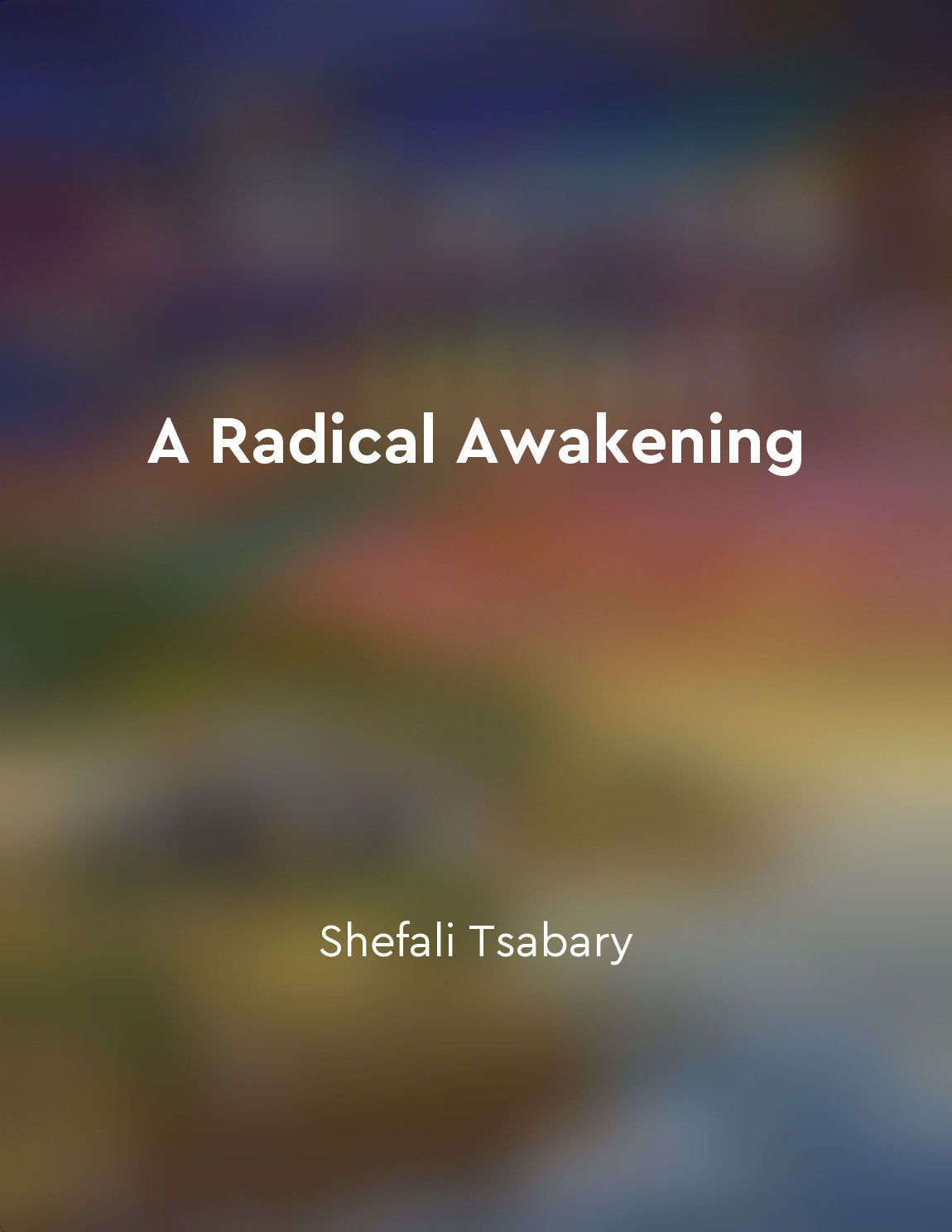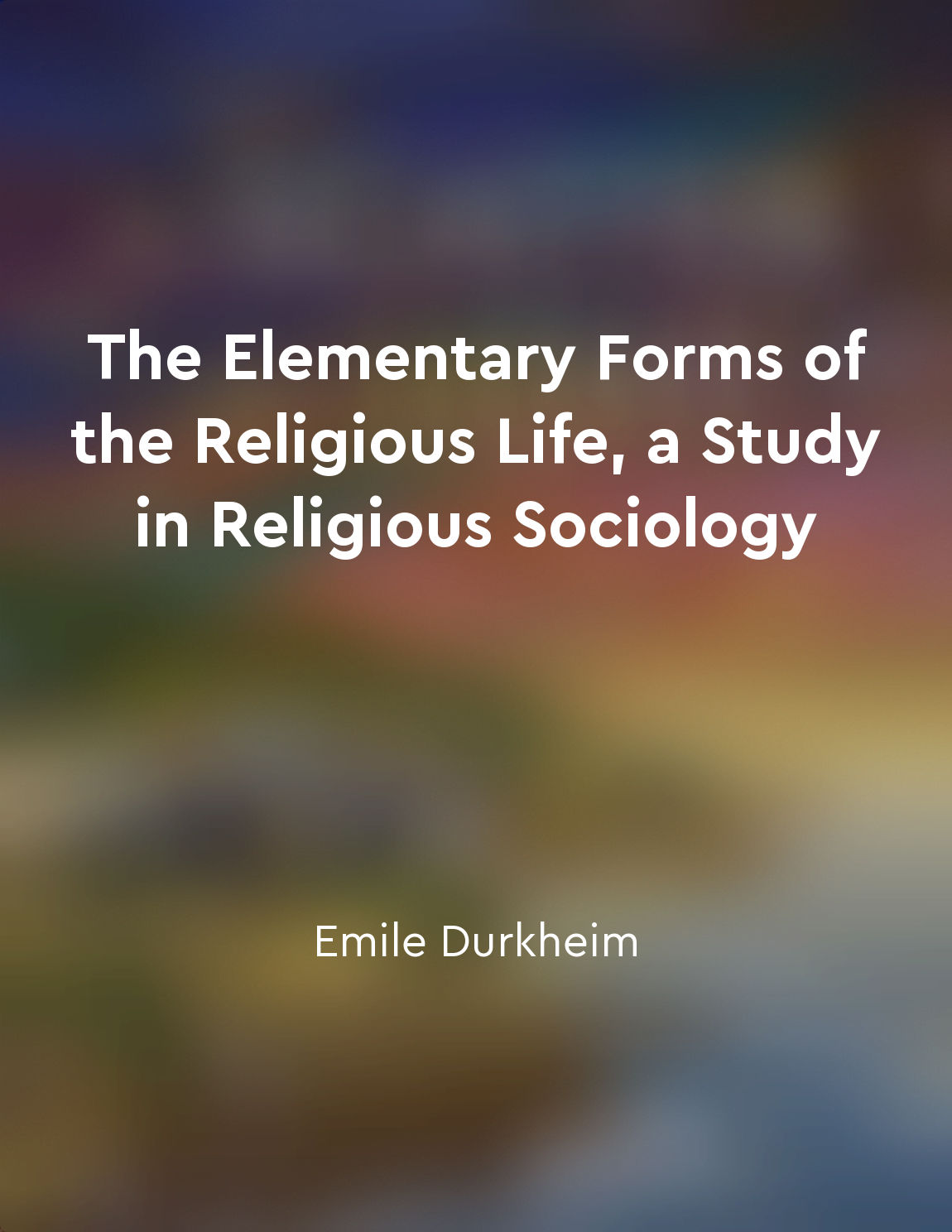The sacred represents the moral force of society from "summary" of The Elementary Forms of the Religious Life, a Study in Religious Sociology by Emile Durkheim
The sacred is a fundamental concept in the religious life of society. It represents a powerful moral force that shapes the behavior and beliefs of individuals within a community. As Durkheim argues, the sacred is not simply a set of rules or prohibitions imposed from above; rather, it is a reflection of the collective conscience of the group. When individuals come together in shared rituals and ceremonies, they are reaffirming their connection to the sacred and to each other. In this sense, the sacred serves as a unifying principle that binds members of society together in a common moral framework. It provides a sense of purpose and meaning that transcends individual desires and interests. Through the worship of the sacred, individuals are able to transcend their own limitations and participate in something greater than themselves. This sense of awe and reverence for the sacred is what gives rise to the moral force that guides and shapes society. It is through the collective worship of the sacred that individuals come to understand their place in the world and their obligations to others. In this way, the sacred represents the moral foundation of society. It is the source of ethical norms and values that govern social interactions and relationships. Without the sacred, Durkheim suggests, society would be adrift in a sea of moral relativism and individualism, lacking a coherent set of beliefs and principles to guide behavior.- The concept of the sacred is essential for the maintenance of social order and cohesion. It provides a shared language and symbolism through which individuals can communicate and express their deepest beliefs and convictions. Ultimately, the sacred represents the moral force that binds society together and gives meaning and purpose to human existence.
Similar Posts

Embrace your worthiness
To recognize our worthiness is to acknowledge and honor our inherent value as human beings. It is to understand that we are des...

Religious symbols embody collective values
In the realm of religious symbolism, the objects and images that hold significance for a particular community are not merely in...

Taboos help maintain social order
Taboos play a crucial role in the maintenance of social order within a society. They serve as a set of rules that dictate what ...

Practice selfdiscipline for spiritual growth
Spiritual growth is not achieved through mere wishful thinking or passive contemplation. It requires a disciplined effort on th...

Religious symbols evoke powerful emotions
Durkheim argues that religious symbols have a profound impact on individuals within a society. These symbols are not just mere ...

Rituals are central to religious life
Rituals hold a significant place in the religious life of a community. They are not merely superficial practices, but rather se...

Religious rituals strengthen group identity
Religious rituals play a crucial role in solidifying the collective identity of a group. Through the performance of these ritua...
Rituals and traditions are integral to Hindu culture
Rituals and traditions form the very foundation of Hindu culture, weaving a tapestry of beliefs and practices that have been pa...
Vedic society was organized into four classes
The Vedic society of ancient India was structured in a way that divided people into four classes known as varnas. These varnas ...

